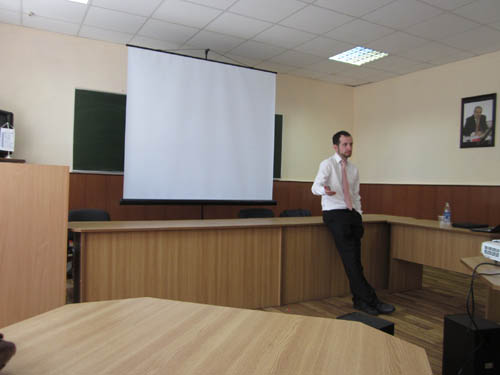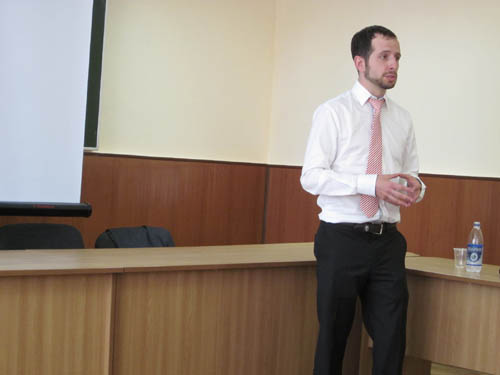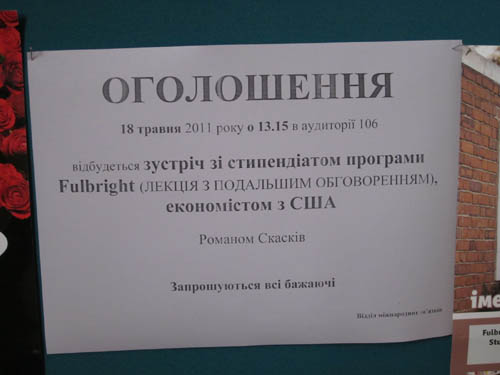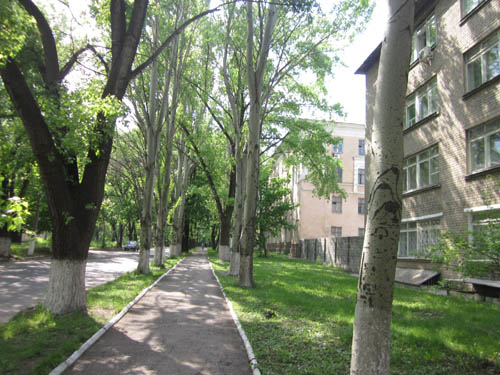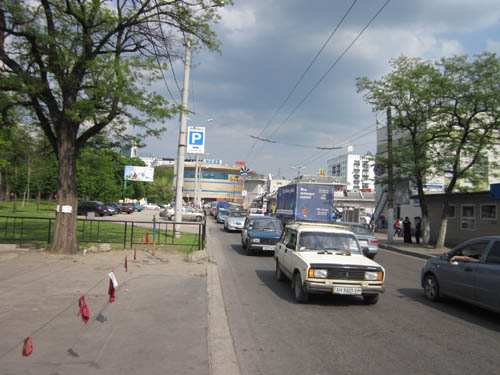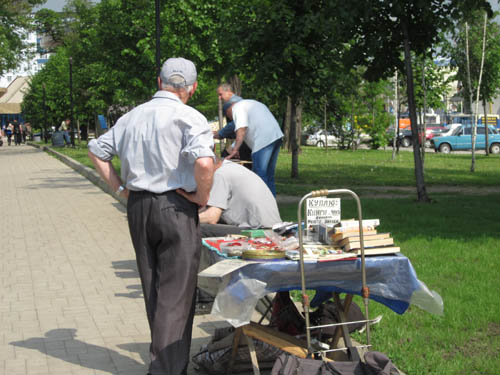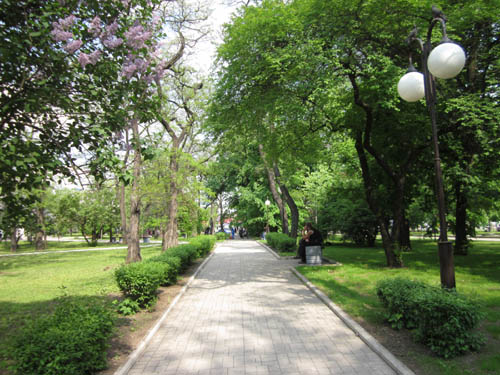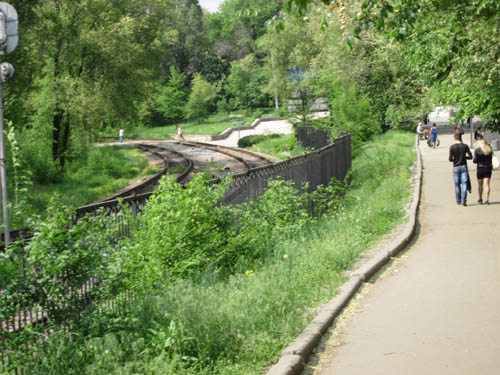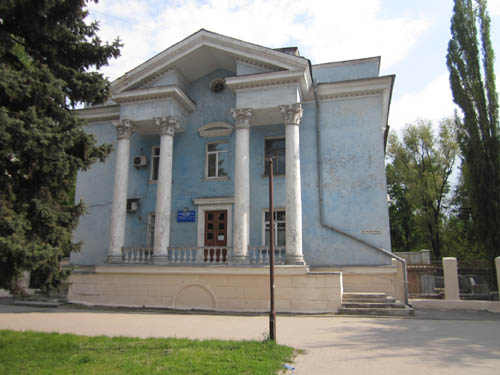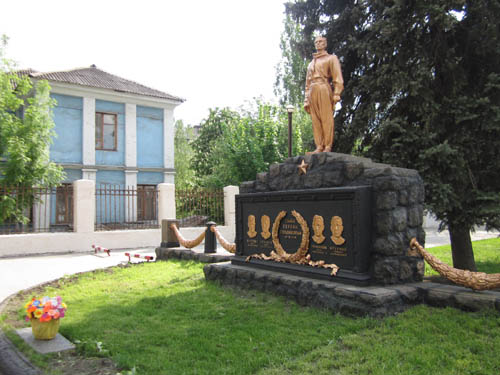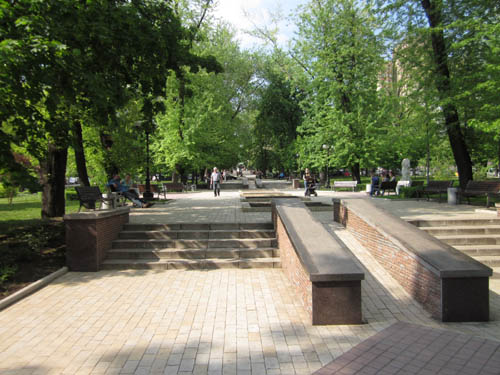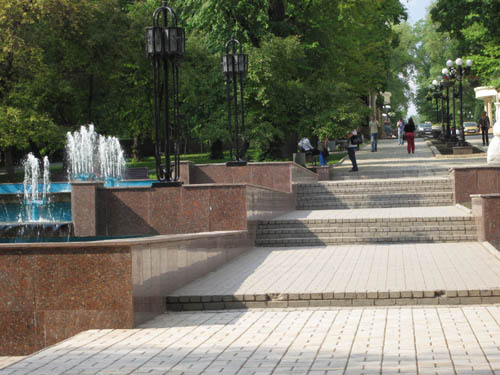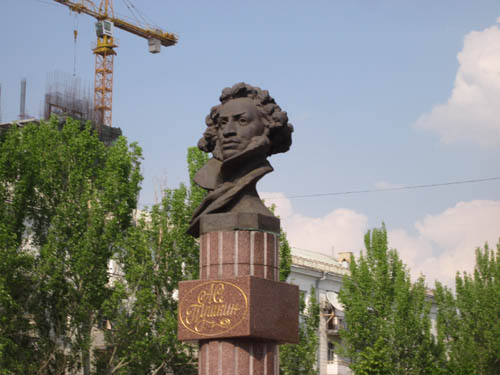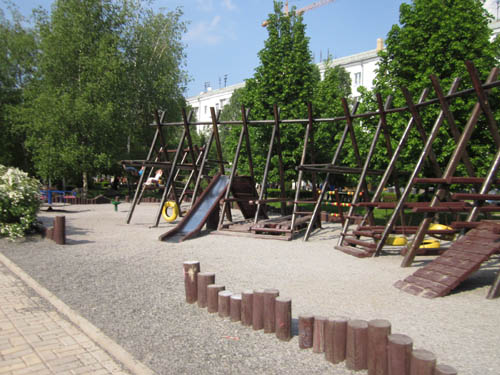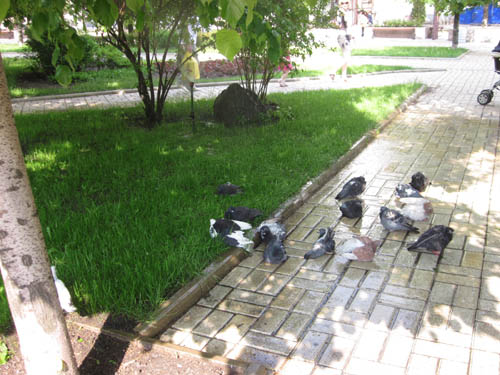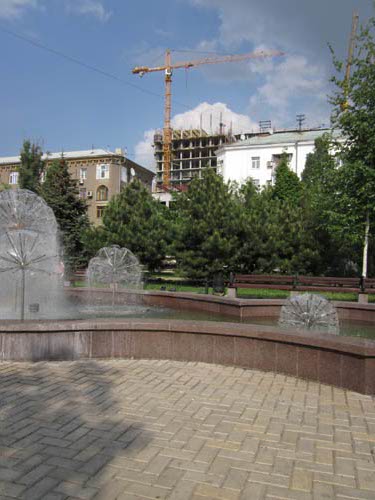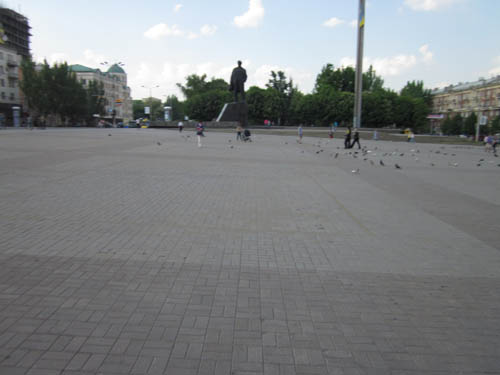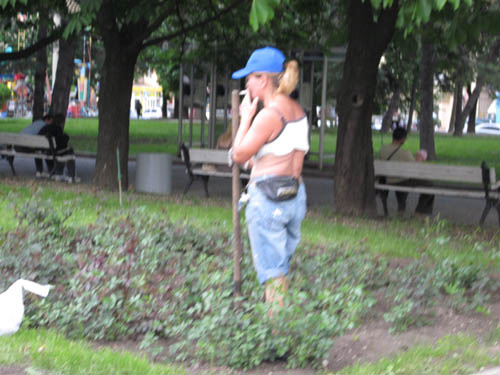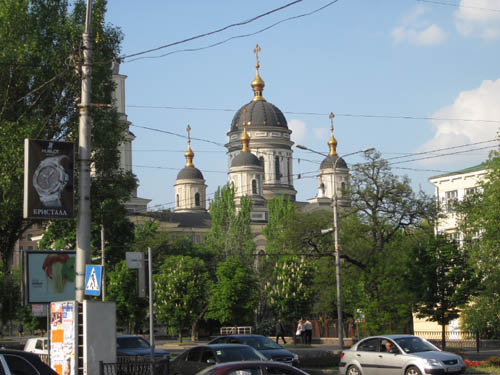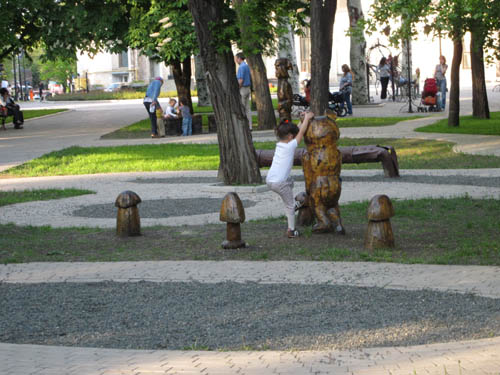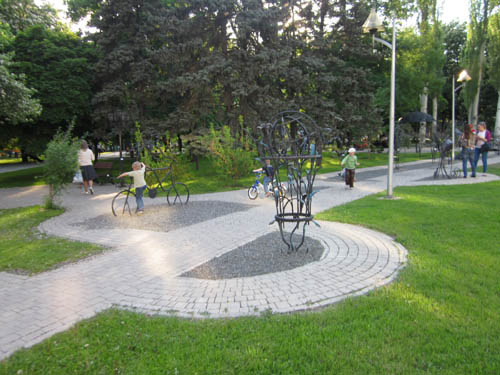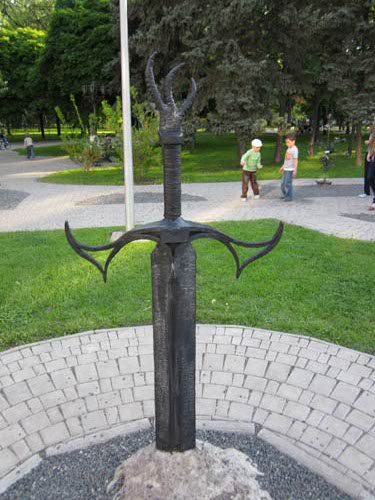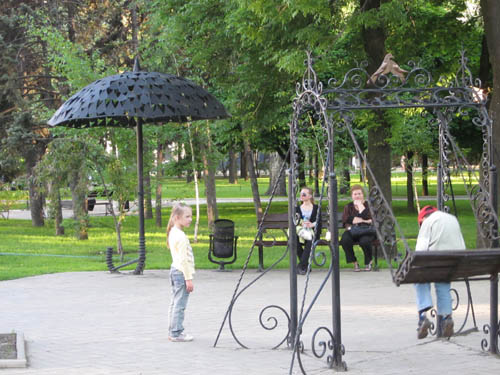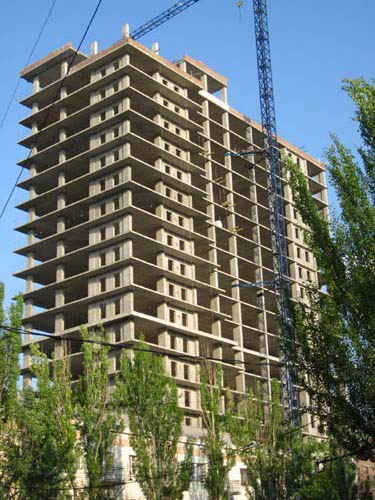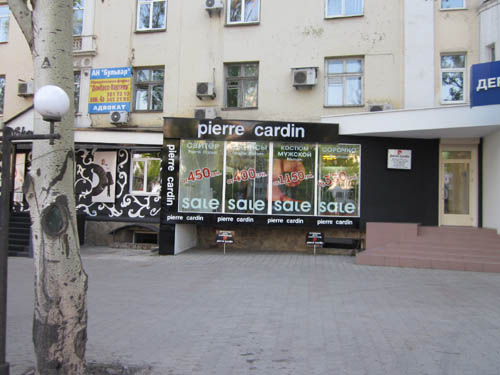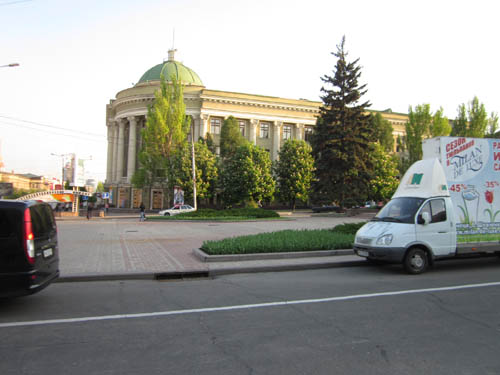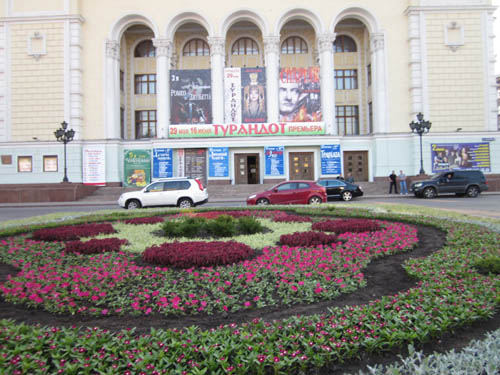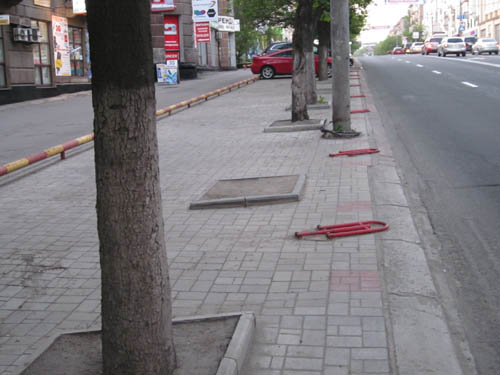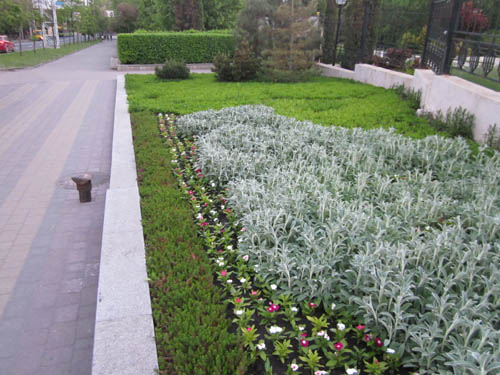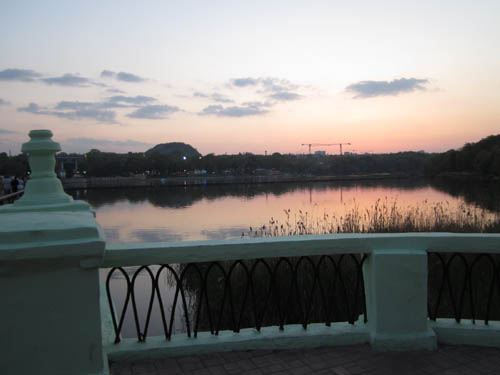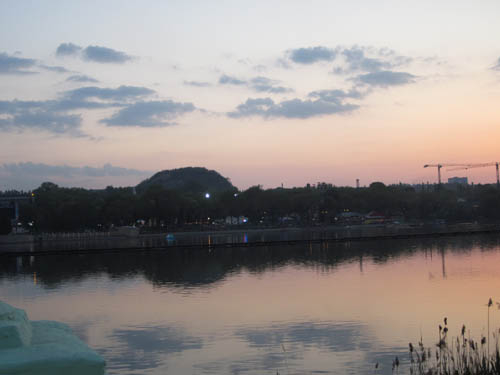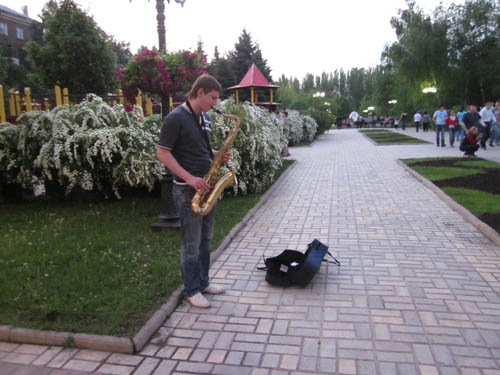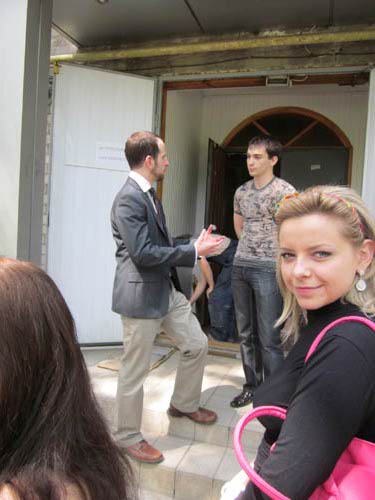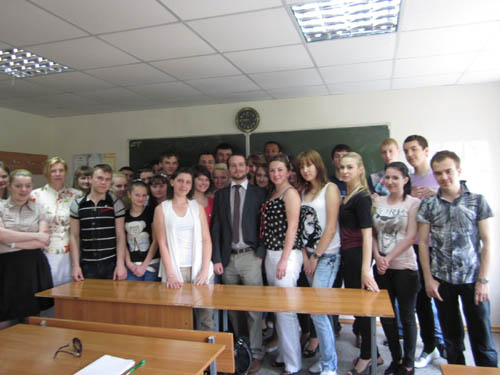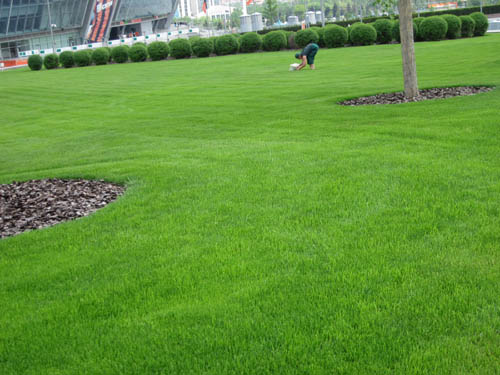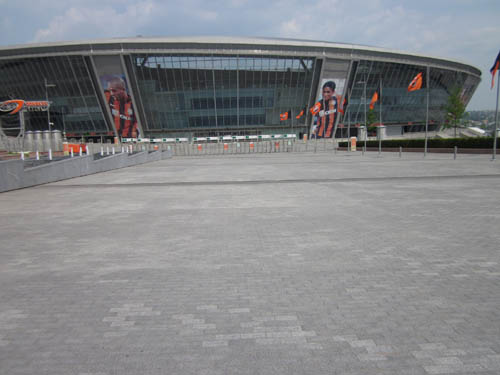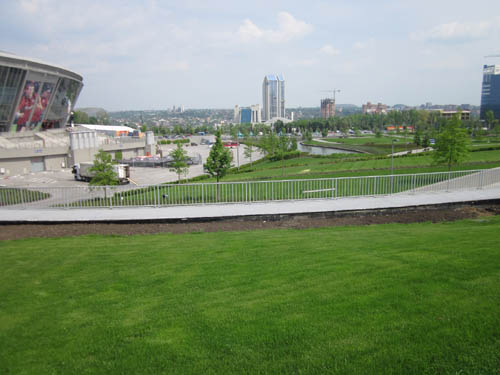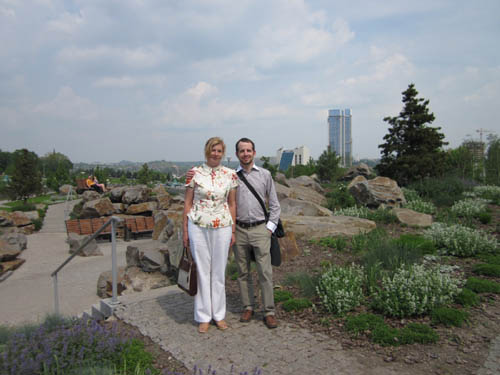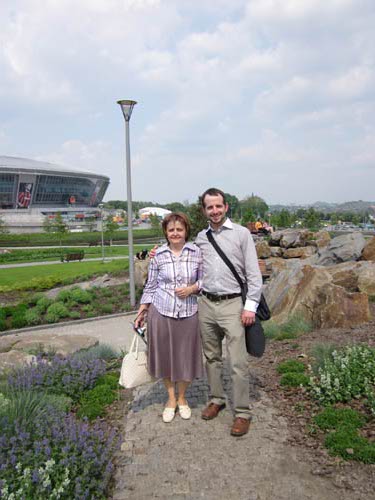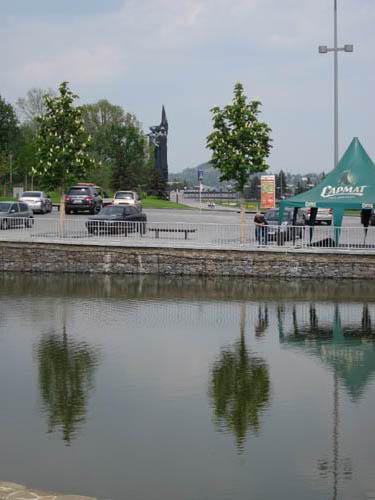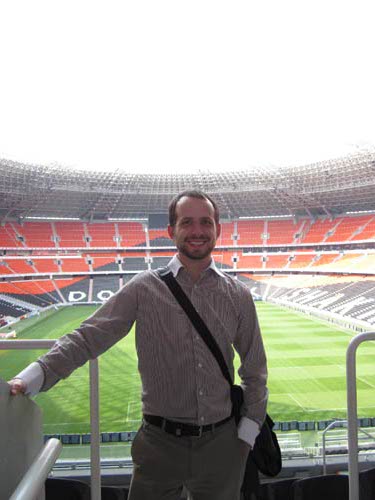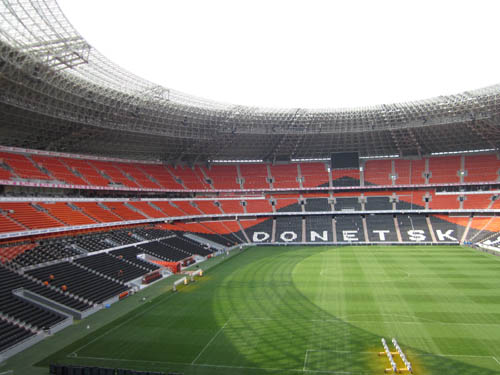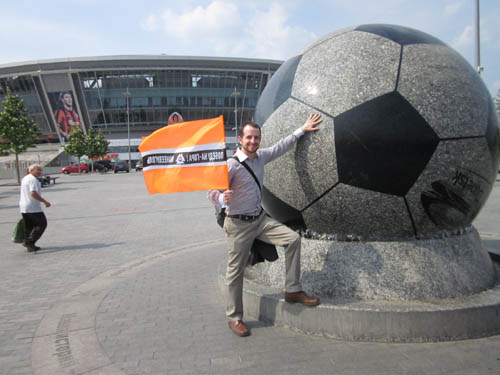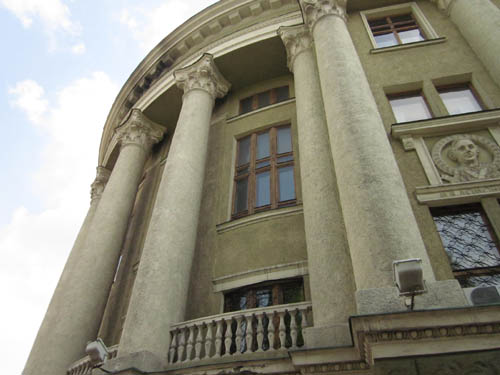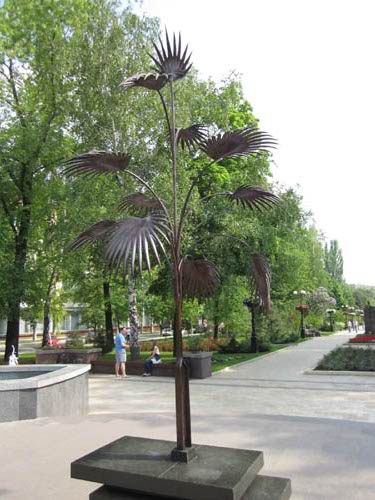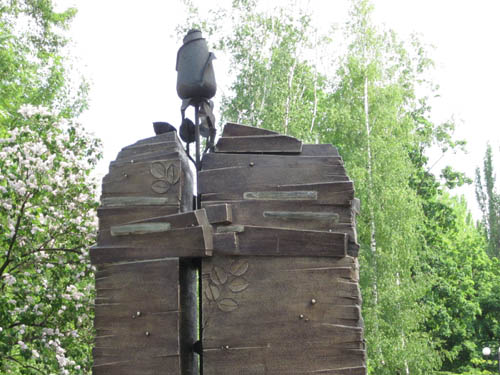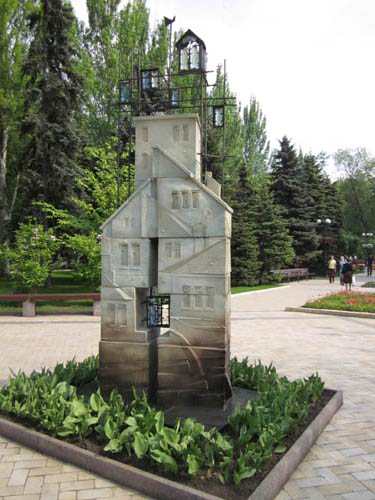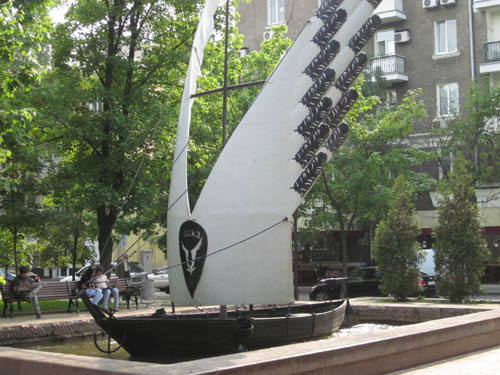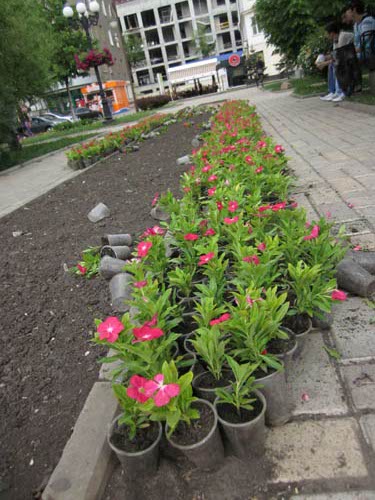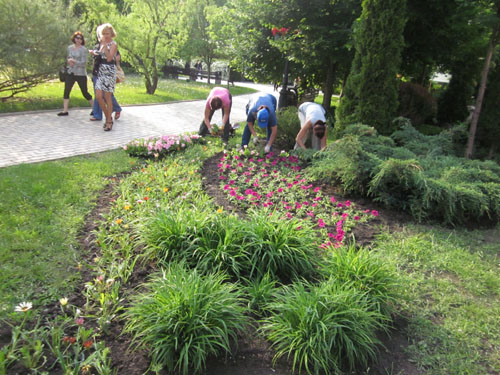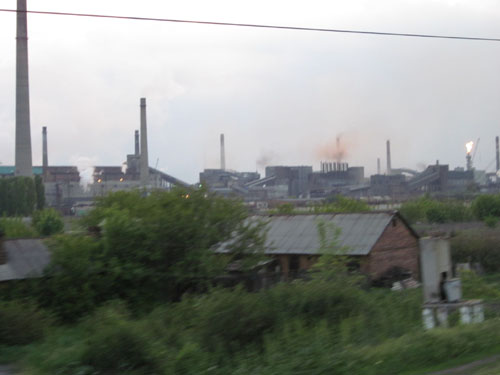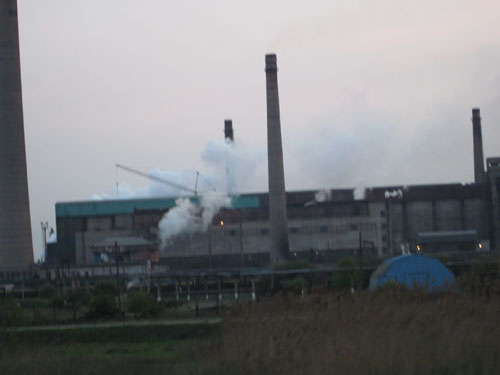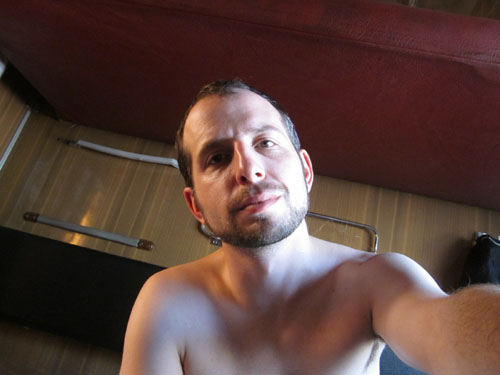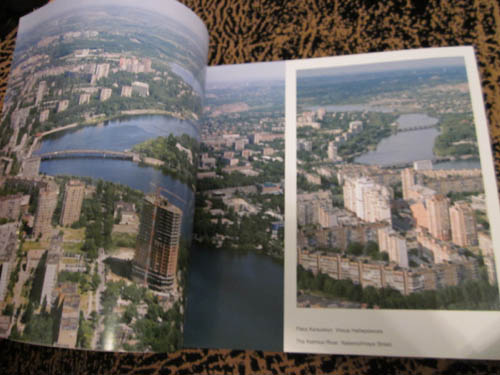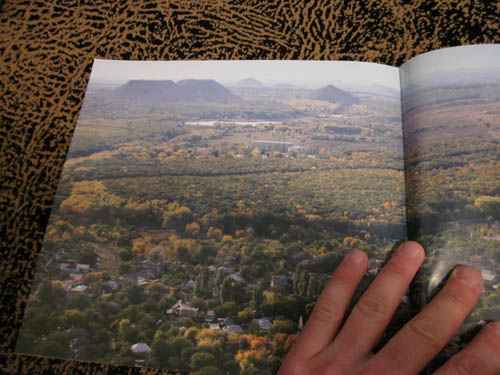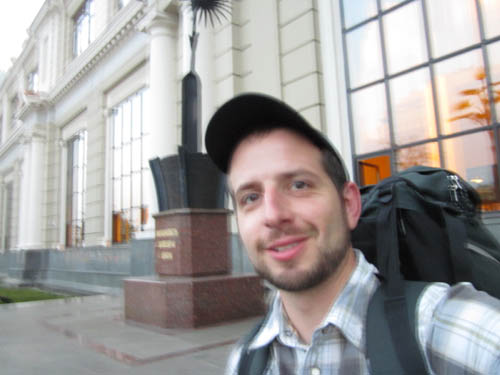I expected Donetsk to be a gray, industrial place. This wasn’t the case at all. There is an extraordinary number of trees. I was told the city was recognize by UNESCO in 1970 as one of the greenest industrial cities in the world.
They are known for steel production, coal mining and roses.
I was struck by how the public areas — parks, roads, sidewalks — are so much better maintained in Donetsk than in other parts of Ukraine. Feel free to speculate as to why.
I gave five lectures in two days and will post the two that I recorded soon.
Two law students and I went out for coffee. They talked about the impossibility of starting a business in Donetsk without the right connections.
There were foreigners in the streets, but Arabs, Chinese and Africans — few westerners, just like in Kharkiv.
My hosts were very gracious. They offered me a wonderful tour of the city and worried like two mothers when I told them that I’d walk around a bit on my own in the evening. One made repeated calls to my mobile to make sure I was okay.
One lady I spoke with said “there isn’t much here, but we like our city.” Many Ukrainians seem to think the worst. I feel like Donetsk has quite a bit to offer. She also said “we speak mostly Russian here, but we are Ukrainian too,” and she seconded her Ukrainian credentials by telling me her husband is descendent from one of Bohdan Khmelnytski’s Atamans (generals).
One law school student asked me about national socialism in L’viv. I told them it is mostly the politicians, and that the people I speak with who have a national socialist inclination are mostly just scared about losing their language and culture. I said that commerce can make anybody peaceful. It forces people to cooperate.
I also spoke with one entrepreneur who endured a grueling two-year fight against corporate raiders and, amazingly, prevailed. “If I hadn’t generated so much publicity,” he said, “they would have killed me for sure.”
Shakhtar, Champion! Shakhtar, Champion! Shakhtar, Champion!




